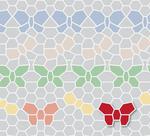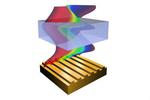Other

“Two-dimensional materials such as graphene may only be one or two atoms thick but they are poised to power flexible electronics, revolutionise composites and even clean our water. However, being this thin comes at a price: the functional properties we …

“The rapidly developing science and technology of graphene and atomically-thin materials has taken another step forward with new research from The University of Manchester. This research, published in Science, shows how a variety of different electronic properties – essentially new materials …

“Researchers at The University of Manchester in collaboration with Central South University (CSU), China, have created a new kind of ceramic coating that could revolutionise hypersonic travel for air, space and defense purposes. Hypersonic travel means moving at Mach five …

“The sought-after development could aid the millions of people without ready access to clean drinking water. The promising graphene oxide sieve could be highly efficient at filtering salts, and will now be tested against existing desalination membranes. It has previously …

“The University of Manchester is leading a consortium to investigate advanced technologies, including robotics and artificial intelligence, for the operation and maintenance of offshore windfarms. The remote inspection and asset management of offshore wind farms and their connection to the …

“Scientists at The University of Manchester have discovered a new method of creating optoelectronic circuits using graphene and other 2D materials that are much smaller than their current counterparts. Optoelectronics, the technology that uses pulses of light rather than traditional …

“Researchers at the University of Manchester have come up with yet another use for graphene that’s far more plausible than some of the other potential uses proposed thus far.”
